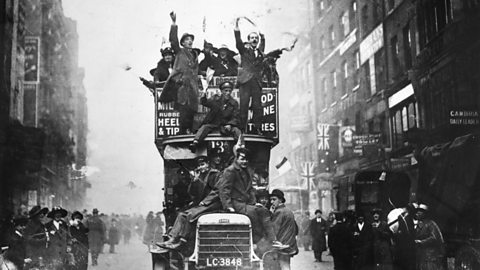What jobs did men do at home?
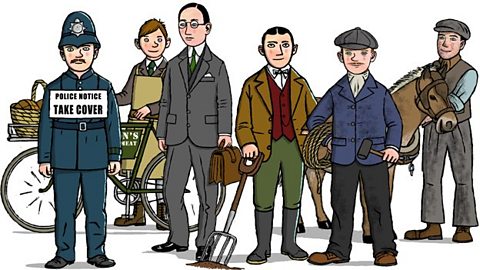
One hundred years ago life was hard for working men, with long hours and low pay.
Many worked in mining, shipbuilding and textiles. Others were farmers, shepherds or fishermen.
Richer men with a better education might have worked as doctors or in banking.
Men from the upper class were often rich as they inherited money from their family and owned land. Some became government ministers.

Working in defence
During World War One, lots of jobs were aimed towards keeping the peace at home in Britain.
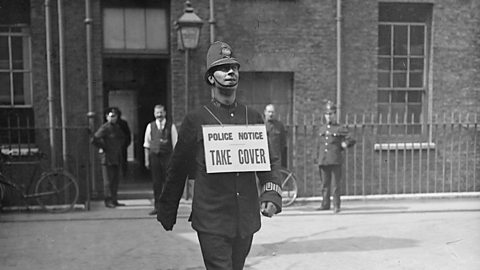
Image caption, Police officers made sure people obeyed new wartime rules
They checked if people's homes were properly covered up during black-outs. If not, the owner would be fined.
Image caption, The police had emergency duties in case Britain was invaded
These included taking old and sick people to places of safety, and destroying rail lines, bridges and food supplies to stop the enemy.
Image caption, The Army Service Corps transported food, fuel and clothing
Many worked in railway depots (a large storage area) or on trains taking supplies to soldiers on the frontline.
Image caption, Ambulance trains were used to take the wounded to hospital
A typical ambulance train could carry up to 400 patients. The carriages had beds, stretchers and kitchens. The trains crew included a driver, guard and stoker plus cooks, doctors and nurses.
Image caption, Men were ready to load and unload patients from ambulance trains
There were lots of pick up points at stations, ports and hospital destinations.
Image caption, Coastguards played a vital role by watching for the enemy
Coastguards were trained to signal messages from land to ships at sea from Port War signal stations. They also protected merchant and hospital ships.
1 of 6
Working in industry
Production of weapons, ammunition and war machines increased. This caused some industries such as ship building, steel factories and munitions (the production of weapons) to grow.
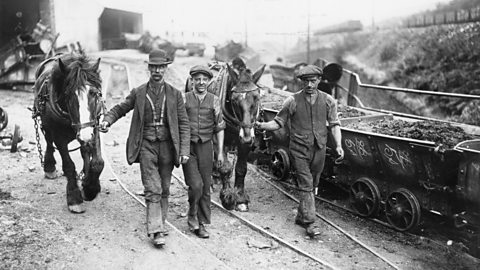
Image caption, Coal was essential for running trains, making electricity and heating
Coal mining was a dangerous job. Many miners felt their safety wasn’t properly considered. Small horses were used to move around carts full of coal, these were called pit ponies.
Image caption, Steel was used to make cars, trucks, ships and railways
The war created an even greater demand for steel to make shells, bullets, tanks, submarines and aeroplanes.
Image caption, Steel workers worked in 'smelting shops' which had open furnaces
Other men worked in cogging mills, rolling out the hot steel into plates for ships and shells.
Image caption, Britain had shipyards to build ships for trade, travel and the Navy
Shipyards needed skilled men to produce battleships for the Navy. They also altered passenger and fishing boats to make them suitable for war.
1 of 4
Farming, fishing and shopkeeping
Men worked in the countryside, on the coast and in shops to provide enough food for everyone in Britain and to supply the army.
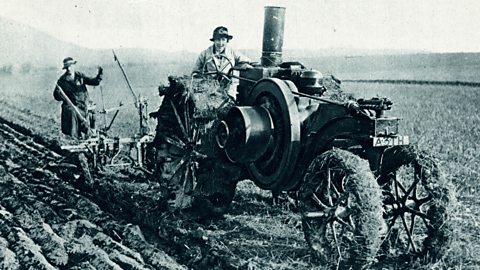
Image caption, Farms were usually worked by a farmer with the help of his family
A shortage of farm labourers during the war meant there was less help available for hard work such as ploughing, harvesting and looking after animals.
Image caption, Fishermen were only allowed to fish in inshore waters
Many fishermen were part of the 'Royal Navy Volunteer Reserve' and could be called on to help the Royal Navy.
Image caption, There were many different types of shops on the high street
Food shops included greengrocers (vegetables and fruit), bakers, butchers and fishmongers. In 1918 the government introduced food rationing to ensure fair shares for all.
Image caption, Many shopkeepers used delivery boys to send shopping
Delivery boys rode around town on bicycles with baskets or sometimes pushing a barrow. They delivered shopping to people’s homes.
1 of 4
What other jobs were needed at home?
Many jobs on the home front were known as ‘reserved occupations’. They were vital to the war effort and the men who did them stayed in Britain.
Vicars and priests stayed at home to look after the needs of their communities, though some went to war as chaplains.
Doctors were needed to tend to the sick and wounded in Britain too.
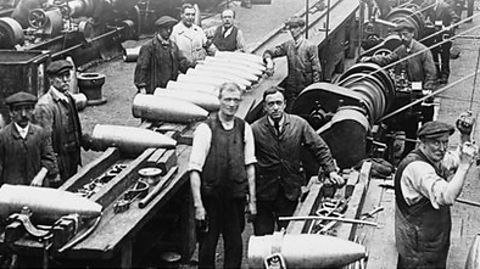
Activities
Activity 1: Quiz – Men on the home front
Activity 2: History Explorer game
Play this game to test your knowledge and learn even more facts about World War One.
History Explorer: Secrets through time
History Explorer: Secrets through time: KS2 History
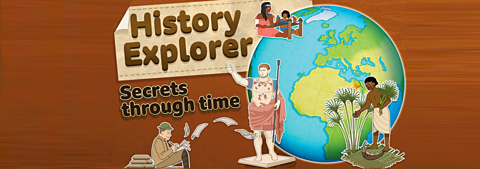
Bitesize Primary games. gameBitesize Primary games
Play fun and educational primary games in science, maths, English, history, geography, art, computing and modern languages.

More on World War One
Find out more by working through a topic
- count18 of 43
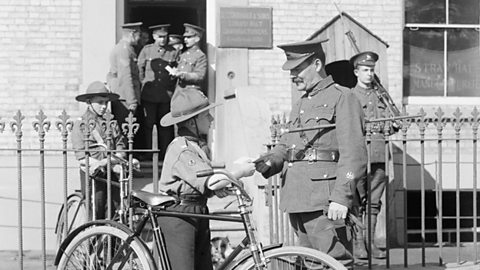
- count19 of 43
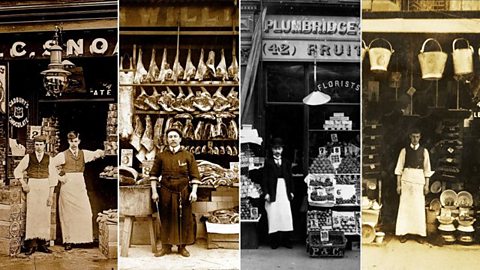
- count20 of 43
